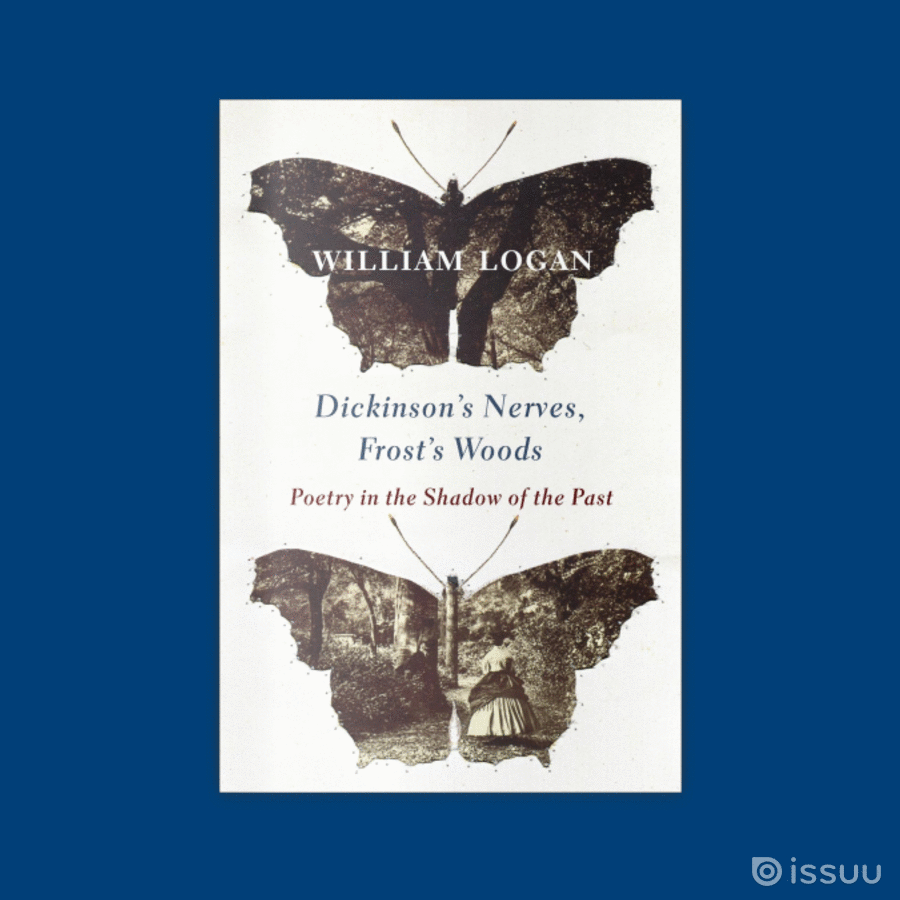Darwin & Poetry? An interview with John Holmes
The following is an interview with John Holmes the author of the recently published Darwin’s Bards: British and American Poetry in the Age of Evolution.
Question: There has been a lot written and said about Darwin recently, but Darwin’s Bards is the only book about Darwin and poetry. It is not an obvious conjunction — what is the link?
John Holmes: Poets have been responding to Darwin and his ideas ever since The Origin of Species was first published a hundred and fifty years ago. If you look back to the 1860s, you’ll find powerful poems responding to Darwin by some of the best poets of the time—Tennyson, Browning, Hardy, George Meredith too, although he is less well-known today.
Q: So your book is a study of how these Victorian poets responded to Darwin?
JH: Only partly. I look at many more recent poets too, both Brits like Ted Hughes and Thom Gunn and Americans like Robert Frost, Robinson Jeffers and Edna St Vincent Millay. Many of the poets I write about are still alive and writing today.
Q: Do you work through, then, looking at how each of these poets responded to Darwinism in their own generation?
JH: No. I am interested in the historical development of Darwinism and the poetry that goes alongside it, but I am mainly concerned with how that poetry can help us to come to terms with Darwinism today.
Q: Are you thinking of the arguments over science and faith here?
JH: This is one of the main themes I explore in the book, yes. Darwinian biology is one of the most robust scientific theories that exist, so anyone with an honest commitment to the truth needs to take account of it, whether they are religious or not. The poets I write about explore in depth many broadly religious or philosophical questions—whether there is a God, how to face death, what the implications of Darwinism are for our place in the universe, what gives life in a Darwinian universe meaning. Some of them—notably Pattiann Rogers—explore what Darwinism might tell us about God from a religious perspective. Others, like Hardy, Meredith and Jeffers, as well as many contemporary poets, look for ways to rediscover meaning in a world without God. Because it makes use of the visceral power of language—its power to make you feel as well as think—poetry can help to fill that gap in a way that prose cannot.
Q: What other aspects of Darwinism do you – and the poets you discuss – respond to in your book?
JH: The other main topics I look at are ecology and sex. The ecological question is especially urgent. Our understanding of our place within and our influence on the environment are grounded in a Darwinian understanding of nature. If we don’t recognize this – if we don’t recognise the very real prospect of extinction, for example, or the interrelatedness of all life, both ecologically and genetically—then we will not realize the full danger of what we are doing to the environment. Poets can help us to this realization, both by focusing our minds on these questions, and by helping to accommodate us to our Darwinian condition.
Q: What about sex? This is a major focus within evolutionary psychology, isn’t it? Does the poetry you read support the evolutionary psychologists’ views of men and women’s biological roles?
JH: Absolutely not, no. Most of this theorizing seems to me profoundly misguided, not only in its politics, but also in its misunderstanding of Darwinism itself. Darwinism does not sustain such neat taxonomies and broad generalizations about how particular species behave. There is a strong strand within Darwinian poetry, running from Meredith through Millay to Gunn, which recognizes that Darwinism is premised not on rigid distinctions and types but on diversity. As these poets realized, this has a marked bearing on how we think of our own and others’ bodies and sexual instincts. Where evolutionary psychology has tended to reinforce social and sexual stereotypes, Darwinian love poetry tends instead to reach towards a liberal understanding of sexual likeness and difference which reinforces sexual equality.
Q: You have talked about how poetry bears on these three big questions raised by Darwinism. What about poetry itself? Does Darwinism affect how we think about poetry?
JH: I don’t think so, except to say that poetry remains as thought-provoking and moving in a Darwinian world as it did before Darwin. What I hope I show in Darwin’s Bards is not that Darwinism affects how we think about poetry, but the opposite—that poetry can profoundly affect how we think about Darwinism.



1 Response